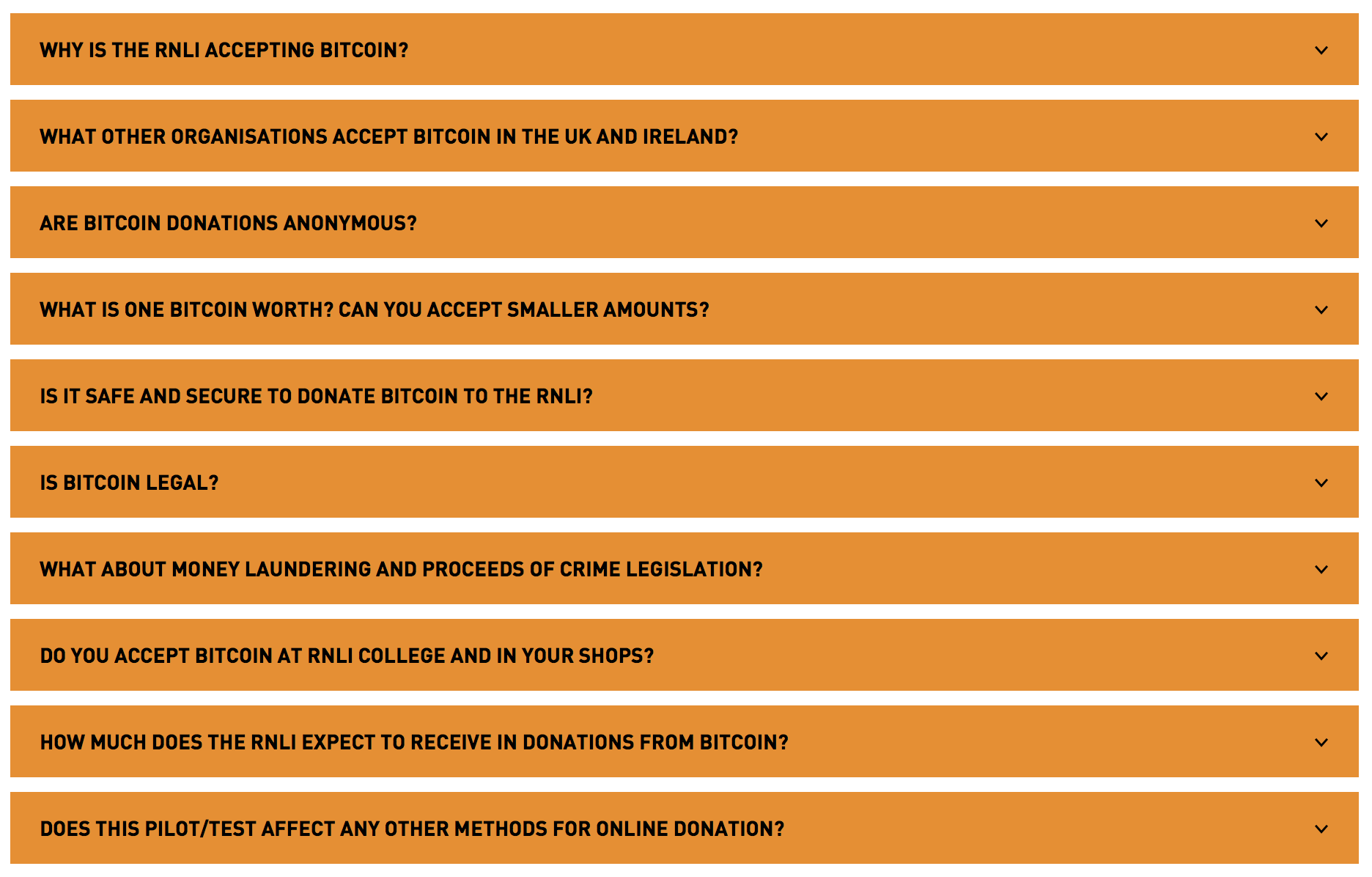Have you ever wanted to donate to a social cause? But doubt your money would end up with those in need stopped you. It’s an understandable concern. Last year, charity fraud across the United Kingdom (UK) reached £2.3 billion, according to the Annual Fraud Indicator 2017.
Cryptocurrencies, secure and transparent, have the power to revolutionise the charity industry. The Royal National Lifeboat Institution (RNLI), the 6th biggest charity in the UK, allows you to make a donation using bitcoin.
A Rising Tide: Crypto for Charities
More and more charities are starting to offer cryptocurrencies as a donation option.
The data speaks for itself: There’s been a ten-fold increase of crypto donations since last year, according to a report by Fidelity Investments. Fidelity Charitable, a donor-advised fund, received nearly $70 million in crypto donations.
Multinational charities are more likely to benefit from crypto donations as there are no fees for money transfer or currency exchange. With globalisation ever-present, crypto donations might become indispensable for future charities.
The RNLI realised the potential of crypto for their organisation.
Braving Unknown Waters: Pioneers in the Charity Sector
Most countries have police, firefighters and ambulances. But in the UK, the RNLI is often known as a fourth emergency service, rescuing approximately 22 people per day. In July 2014 they became the first major UK charity to accept bitcoin donations.
The innovation is the brainchild of the RNLI’s future trends group. The team studies what will affect the RNLI in five or 10 years’ time.
“Having worked on it, we realised that it wouldn’t take much more work to actually accept it,” said Lewis Williams, Social Media Innovation Officer at the RNLI. “We knew we’d probably be the first if we did it, and we thought that might generate some interest.”
The organisation’s website takes donors by the hand, clearing away any concerns they might have.

As with every business decision, introducing bitcoin as a donation option bore some uncertainty. But the management saw that the benefits outweighed the risks.
“There have been negative stories and we discussed these but we felt that, on balance, this was a technology that we should know more about,” Williams explained.
RNLI Deputy Director of Fundraising and Communications Leesa Harwood, believes accepting bitcoin will attract new types of donors. These people would previously not have made a donation.
Innovation: Critics vs. Early Adopters
However, not everyone is as optimistic about crypto adoption within the charity sector.
Jon Nott, general secretary of the RNLI, is cautious about widespread crypto adoption among charitable groups. It takes considerable resources to implement the technology, and this might not be feasible for smaller charities.
On the other hand, AJ Leon, founder of digital agency Misfit encourages people to see the bigger picture. He argues the added value of bitcoin donations goes beyond the amount of money raised.
There have been negative stories and we discussed these but we felt that, on balance, this was a technology that we should know more about.
“Simply by accepting bitcoin, you’re signalling to an entire demographic of well-connected, affluent technophiles that you are one of them,” AJ Leon said.
The entrepreneur sees an advantage in bitcoin’s lack of ties to governments and
central banks. And he is not the only one.
Last week, UK member of parliament Eddie Hughes made headlines after suggesting taxes could be paid with bitcoin. Hughes referred to the RNLI in his argument underlining the rise of crypto in various areas of society.
“Only recently I met with the RNLI which is now accepting charitable donations through cryptocurrency – if we can do that, what’s to stop us being able to pay council tax and other bills with Bitcoin?” Hughes asked.
We've had 28 bitcoin donations today! A big thank you to all the tippers on this #TippingTuesday – your donation will help save lives at sea
— RNLI (@RNLI) November 11, 2014
Simply by accepting bitcoin, you’re signalling to an entire demographic of well-connected, affluent technophiles that you are one of them.
With big players like the RNLI leading the way in crypto adoption, other charities might climb on the bandwagon soon. Secure and encrypted money transfers verified with the groundbreaking blockchain technology can serve as an immense corruption minimiser. The democratic force of crypto provides an opportunity to address the systemic issue of corruption and empower those in need.
To keep up to date with important crypto news in the UK, follow us on Facebook and Twitter.